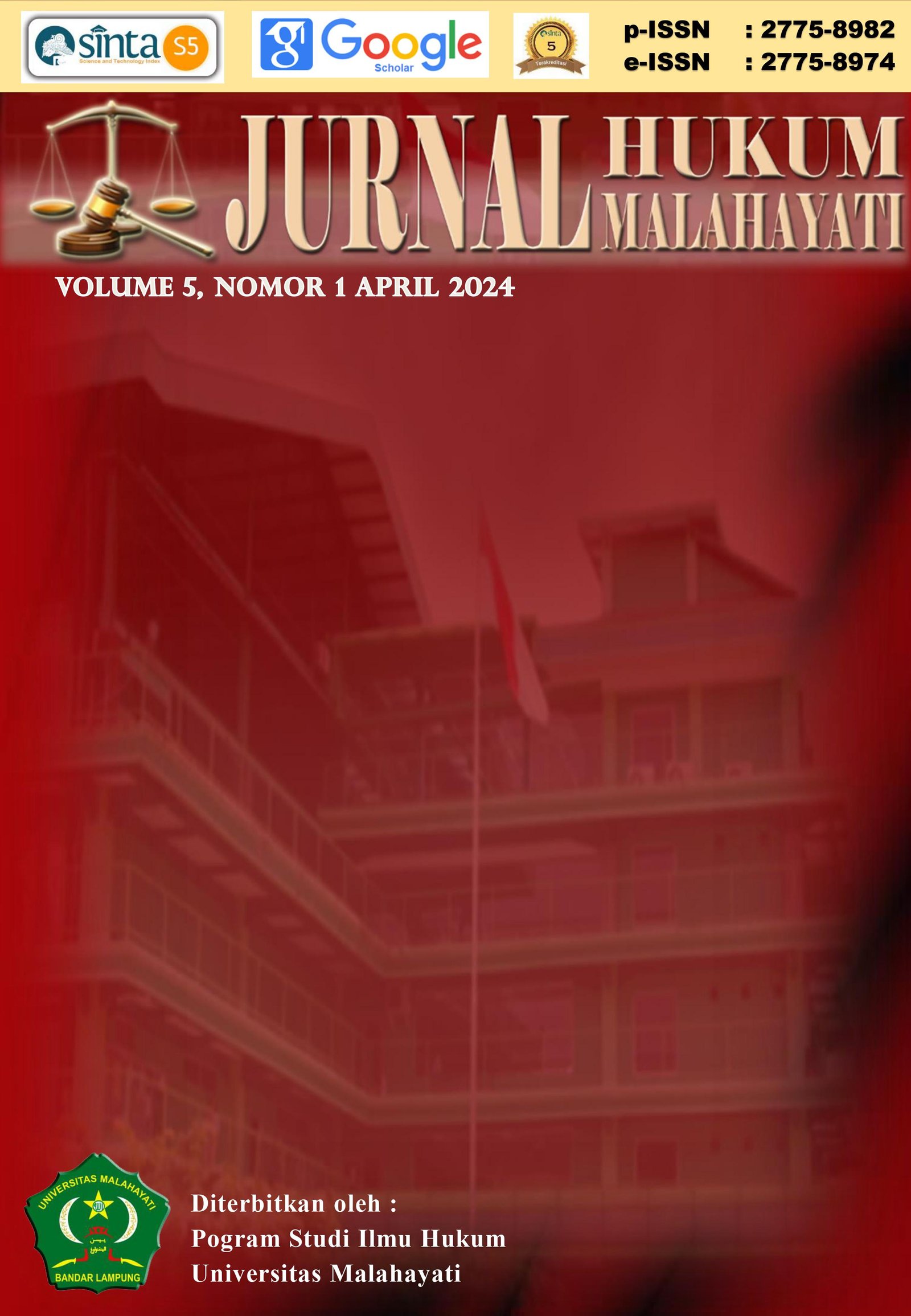
Legal Protection Of Traditional Medicines In The Perspective Of Health Law And Intellectual Property Law In Indonesia
Sari
Advancements in health law mirror the progress made in health science. Presently, health law holds significant weight in addressing diverse challenges and legal matters within the health domain. Conversely, amidst the evolution of increasingly sophisticated technology, traditional medicine has garnered diminished attention. Yet, within the context of Indonesia's efforts to ensure the right to health, traditional medicine ought to be a crucial alternative to be acknowledged. This proposition finds support in Indonesia's rich natural environment, which boasts abundant biodiversity, including numerous plant species with potential applications in traditional medicinal practices. Consequently, ensuring legal safeguards for traditional medicines from the perspectives of both health law and intellectual property law becomes paramount. The research methodology adopted in this study is normative research, centered on the conceptualization of legislative principles or norms serving as the foundation for human conduct. The primary objective is to scrutinize the Legal Protection of Traditional Medicines within the framework of Health Law and Intellectual Property Law in Indonesia.The study's findings revealed that while Law No. 17 of 2023 does not explicitly delineate traditional medicine, it equates the term with "Natural Medicines." Article 321, paragraph (1), classifies natural medicine into distinct categories such as herbal medicine, standardized herbal medicine, phytopharmaca, and other natural remedies. The legal coverage for traditional or natural medicines is stipulated in Articles 324-325 of Law No. 17 of 2023 on Health. Conversely, within the Intellectual Property Rights (IPR) context, protection for traditional medicines is encompassed within the patent system, as outlined in Article 26 of Law No. 13 of 2016 on Patents.
Keywords: Health Law, Intellectual Property Law, Patent, Traditional Medicine.
Teks Lengkap:
PDFReferensi
Anugerah, O. B., & Santoso, B. (2022). Perlindungan Hukum Pada Obat Tradisional di Daerah Karo Berdasarkan Prespektif Hak Kekayaan Intelektual. Notarius, 15(1), 133–146. https://doi.org/10.14710/nts.v15i1.46030
Ayu, M. R., SH, L. L. M., Alexander, P. D. H., SH, M. H., & LL M Wina Puspitasari, S. H. (2022). Hukum sumber daya genetik, pengetahuan tradisional dan ekspresi budaya tradisional di Indonesia. Penerbit Alumni.
Ayu, N. K., & Wiryawan, I. W. (2019). Pengaturan perlindungan hukum atas obat tradisional berdasarkan perspektif hak kekayaan intelektual *. Program Kekhususan Hukum Bisnis Fakultas Hukum Universitas Udayana, 1–15.
Burris, S., Wagenaar, A. C., Swanson, J., Ibrahim, J. K., Wood, J., & Mello, M. M. (2010). Making the case for laws that improve health: A framework for public health law research. Milbank Quarterly, 88(2), 169–210. https://doi.org/10.1111/j.1468-0009.2010.00595.x
Dharmawan, N. K. S. (2017). Protecting traditional Balinese weaving trough copyright law: is it appropriate? Diponegoro Law Review, 2(1), 57–84.
Dharmawan, N. K. S. (2018). Harmonisasi hukum kekayaan intelektual Indonesia. Swasta Nulus.
Etika, S. A. (2007). Hukum kesehatan. Makasar: Hasanuddin University.
Hukum, P., Dalam, P., Konsultasi, L., & Online, K. (2021). 1-Article Text-27-1-10-20210418.
(01), 1–10.
Kurnianingrum, T. P. (2018). ( LEGAL PROTECTION OF THE KNOWLEDGE OF TRADITIONAL MEDICINE ) Agreement on Trade Related Aspects of Intellectual bentuk hak cipta , merek , paten , rahasia dagang , di luar rezim tersebut , yakni munculnya pengetahuan manusia , pengetahuan tradisional per. Pusat Keahlian, Badan Ri, D P R Nusantara, I Jend, Jl Subroto, Gatot, VIII(2), 111–128.
Lestari, S. N. (2012). Implementasi Compulsory Licensing terhadap Obat-Obatan dalam Bidang Farmasi di Indonesia (Studi Berdasarkan DOHA Declaration on the TRIPS Agreement and Public Health). Program Pascasarjana Undip.
Organization, W. H. (2013). WHO traditional medicine strategy: 2014-2023. World Health Organization.
Purba, A., Saleh, G., & Krisnawati, A. (2005). TRIPs-WTO & hukum HKI Indonesia: kajian perlindungan hak cipta seni batik tradisional Indonesia. (No Title).
Sampurno, B. (2011). Laporan Akhir Tim Penyusunan Kompendium Hukum Kesehatan.
Sholikhah, E. N. (2016). Indonesian medicinal plants as sources of secondary metabolites for pharmaceutical industry. Journal of Thee Medical Sciences (Berkala Ilmu Kedokteran), 48(04), 226–239. https://doi.org/10.19106/jmedsci004804201606
Sukandar, T. C., & Windia, I. W. (n.d.). Perlindungan Hukum Traditional Knowledge dalam Sistem Hak Kekayaan Intelektual di Indonesia. Kerthasemaya Article, Fakultas Hukum Universitas Udayana.
Sukihana, I. A., & Kurniawan, I. G. A. (2018). Karya Cipta Ekspresi Budaya Tradisional: Studi Empiris Perlindungan Tari Tradisional Bali di Kabupaten Bangli. Jurnal Magister Hukum Udayana (Udayana Master Law Journal), 7(1), 51–62.
Wahyuni, W. (2022). Hukum Kesehatan di Indonesia. HukumOnline.Com. https://www.hukumonline.com/berita/a/hukum-kesehatan-di-indonesia-lt62426ed71477a/#!